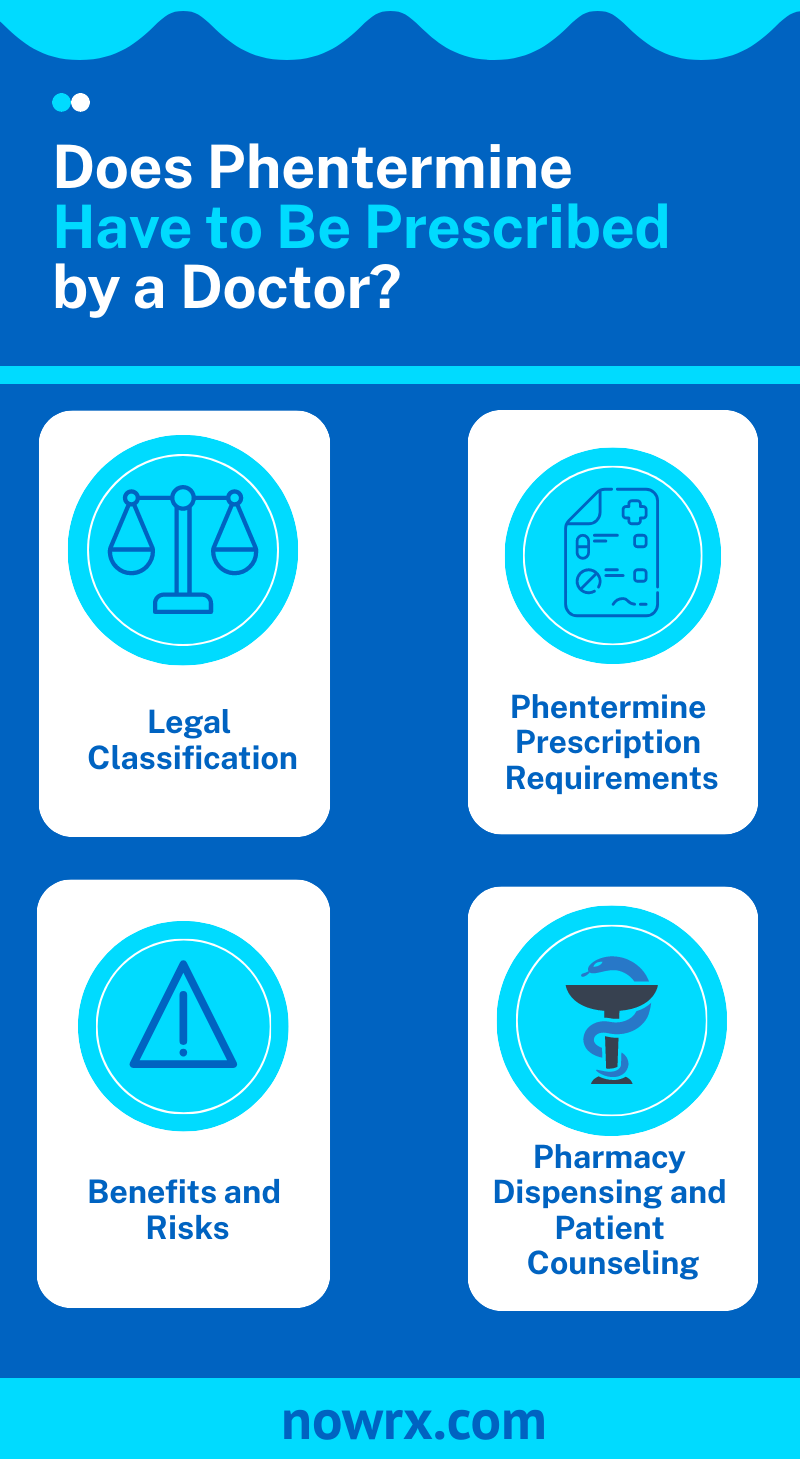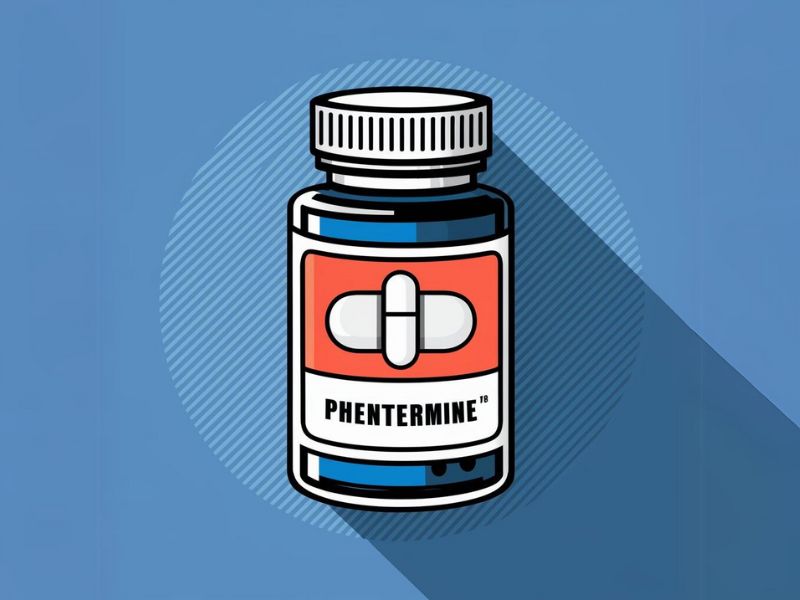Phentermine stands as a prominent solution in the field of weight loss medication, often sparking curiosity about its accessibility and the necessity of a doctor’s prescription.
Typically classified as a Schedule IV controlled substance due to its potential for abuse and dependency, phentermine is indeed a drug that the Food and Drug Administration (FDA) has approved for short-term use in managing obesity.
As a stimulant comparable to an amphetamine, its primary mechanism is to suppress appetite, thereby aiding in weight reduction when used adjunctively with diet and exercise.

Legal Classification

Phentermine is a prescription medication, which means that you can only legally obtain it with a doctor’s prescription. It falls under the category of anorexiant and central nervous system (CNS) stimulants[1].
This medication is used primarily to aid in weight loss for those who are considered overweight and have not succeeded with other weight loss methods.
It is crucial for you to understand that phentermine is classified as a Schedule IV controlled substance in the United States. This designation is given to substances that have a valid medical use but also possess the potential for abuse and dependence.
Due to these associated risks, regulations strictly govern how phentermine is prescribed and dispensed.
Here’s what the legal classification means for you:
- Your prescription for phentermine must come from a licensed healthcare provider.
- Pharmacists are legally bound to dispense it in accordance with federal and state regulations.
- The prescription process for phentermine is monitored to prevent misuse.
Phentermine Prescription Requirements

Before receiving a prescription for phentermine, the patient undergo a medical evaluation. This assessment ensures that it is a safe and appropriate weight loss medication for your specific health profile.
It generally includes a review of your medical history, current health status, and a discussion of potential side effects.
Only qualified healthcare providers can prescribe phentermine. These professionals have the authority to evaluate your need for the medication and to write a prescription in line with state and federal regulations.
Being a Schedule IV controlled substance, it is subject to strict regulations. The laws governing its prescription vary by state but generally include limitations on the dosage and duration of use.
Your prescribing professional will advise you on these restrictions to ensure your use of phentermine is within legal and safe bounds.
Benefits and Risks

Phentermine is a prescription medication that can aid in weight loss, but its use also comes with certain risks that need consideration.
Therapeutic Benefits
Phentermine works primarily as an appetite suppressant[2], making you feel less hungry and potentially leading to reduced calorie intake. Clinical studies have shown that it can be effective when used in conjunction with a low-calorie diet and regular exercise.
It is FDA-approved for short-term weight management, which indicates a level of efficacy and safety when used as prescribed.
Potential Side Effects and Risks
Phentermine is not without potential side effects and risks. It can cause insomnia and dry mouth.[3]
It is contraindicated in individuals with certain medical conditions like heart disease, uncontrolled high blood pressure, or a history of drug abuse.
It’s crucial to consult your doctor to assess if it is a suitable option for you and to understand the full spectrum of possible health implications.
Pharmacy Dispensing and Patient Counseling

Proper dispensing and counseling are critical when you receive prescription medications like phentermine. It is important for you to understand the protocols and the pharmacists’ role in this process for safe and effective use.
Prescription Validation
When you present a prescription, the pharmacist must ensure that the prescription is valid and legal. Validation includes verifying the prescriber’s credentials, confirming that the dosage is appropriate, and checking for potential drug interactions.
Patient Education
Once your prescription is validated, pharmacists are instrumental in providing thorough patient education. They explain how to take the medication properly—it is typically taken as a single daily dose or three times a day before meals, as described by MedlinePlus.
Moreover, pharmacists will advise on potential side effects, and lifestyle changes for optimal results. This education is a vital part of ensuring your safety and the medication’s effectiveness.
The Bottom Line
Phentermine stands as a controlled and effective aid in weight loss when used under medical supervision.
It requires a doctor’s prescription due to its potential for abuse and health risks.
While it can be an integral part of a weight management plan, understanding its benefits, risks, and alternatives is crucial for safe and informed usage.
References:
1. Toxicology Cases for the Clinical and Forensic Laboratory: Central nervous system stimulants – https://www.sciencedirect.com/science/article/abs/pii/B9780128158463000144
2. Topiramate and Phentermine – https://www.ncbi.nlm.nih.gov/books/NBK482165/
3. Yonsei Med J: Effects on Weight Reduction and Safety of Short-Term Phentermine Administration in Korean Obese People – https://www.ncbi.nlm.nih.gov/pmc/articles/PMC2687747/
Drake Holloway, 45, is a pharmacist and freelance blog writer for NowRx.com. He uses his professional background to provide information and opinions on diverse subjects to those seeking guidance.











